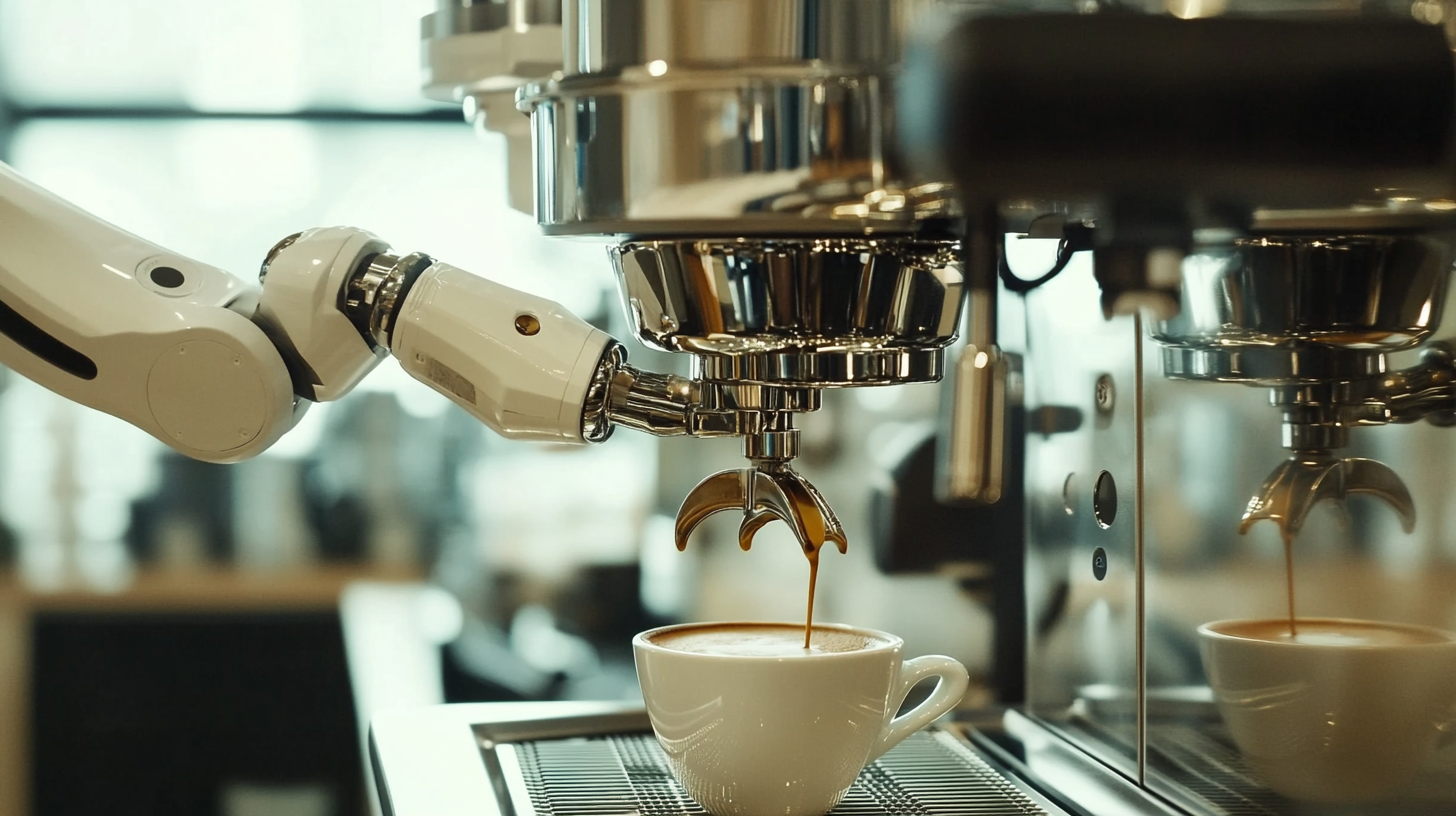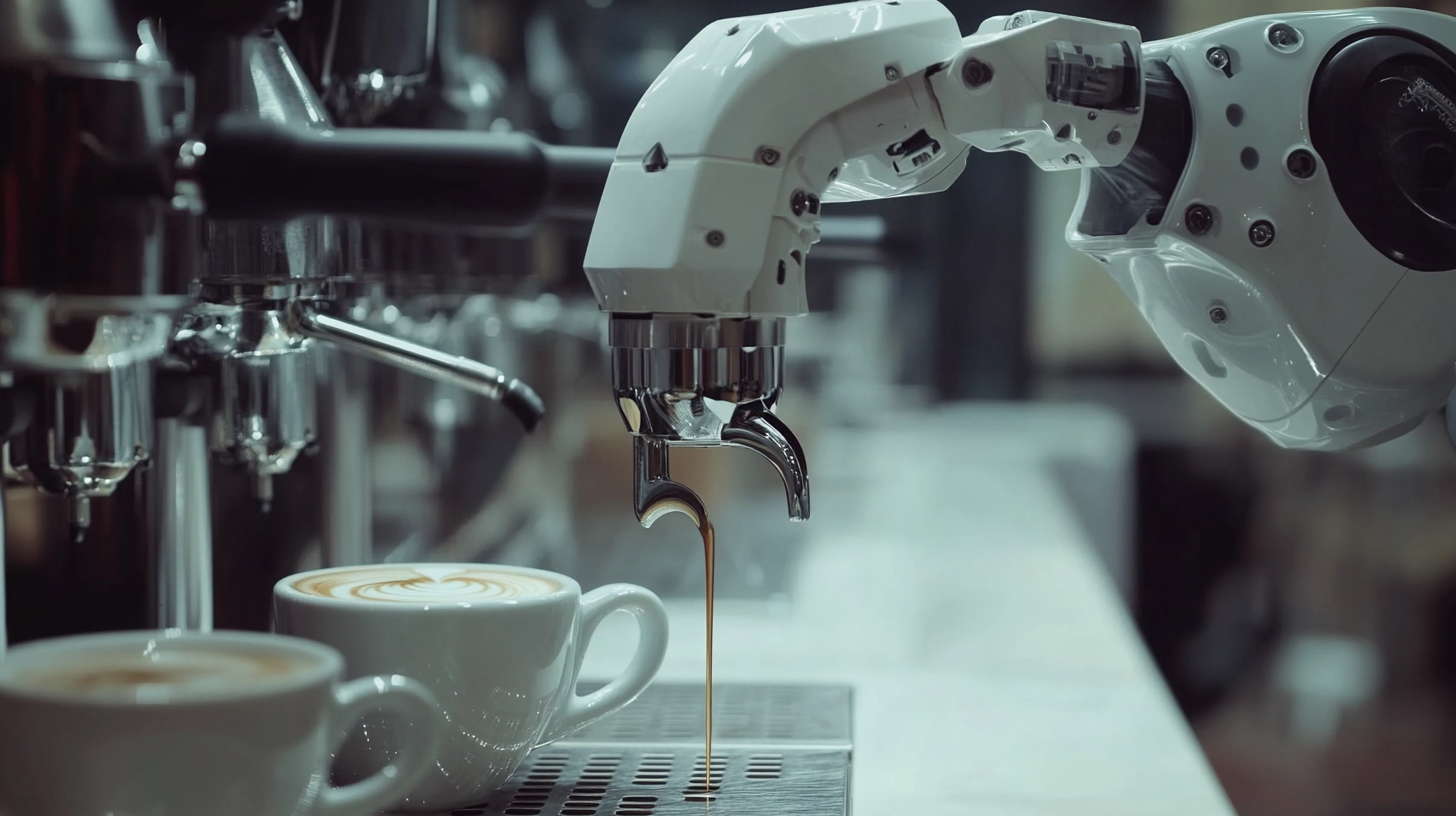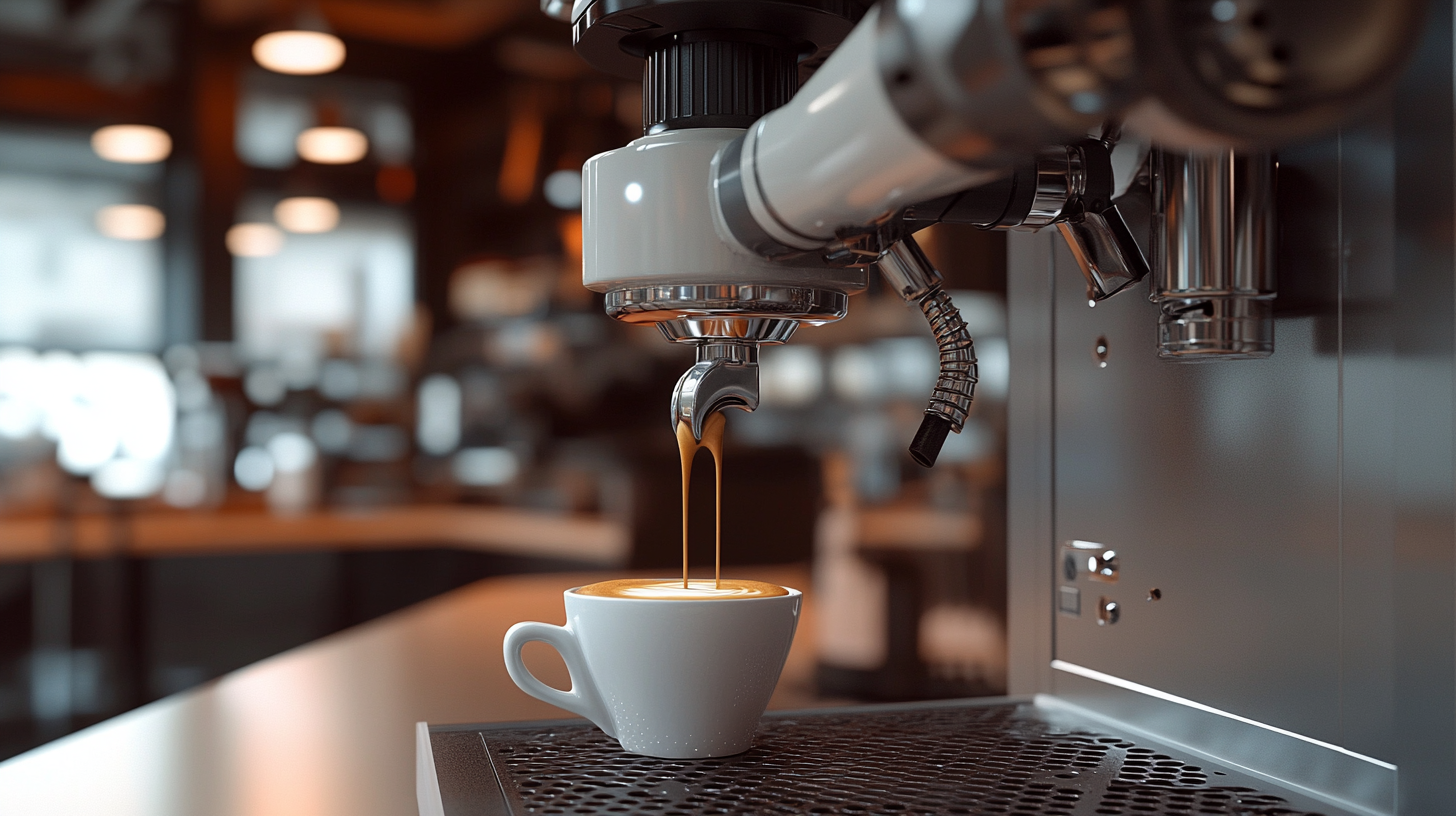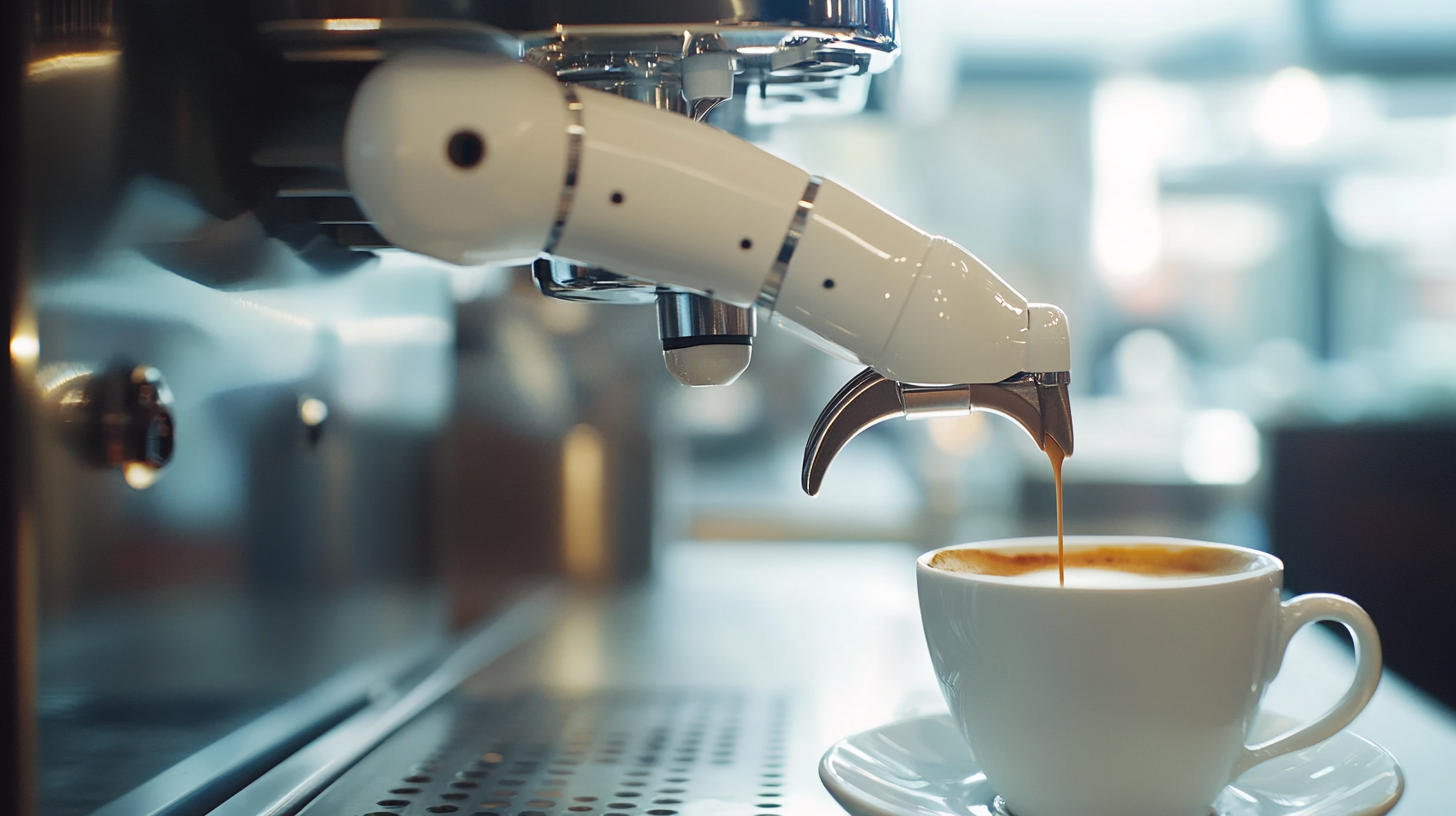Future Trends in Coffee Technology 2025 How Robot Coffee Machines Are Transforming Global Markets
Coffee is about to enter a technological revolution spearheaded by innovations such as the Robot Coffee Machine. With once-projected growth of 2% per annum until 2025, consumption of coffee has now reached the highest level ever, per a new report by the International Coffee Organization. In the race to provide their consumers with an excellent-quality brew, coffee producers and retailers are now increasingly employing robotics to help streamline their operations and improve efficiencies while offering custom-made coffee experiences.
The Robot Coffee Machine is not merely a fad; it represents a paradigm shift in the preparation and sale of coffee across various markets. Allied Market Research notes the global automated coffee machine market is projected to overtake USD 3.5 billion by 2025, buoyed by the popularity of specialty coffee and the requirement for heightened productivity in fast-paced environments such as cafes and restaurants. These technologies are enhancing customer experiences and disrupting supply and workforce dynamics in the coffee industry, creating a revolution in the very manner we interact with our morning cup of joe.

The Rise of Robot Baristas: A Game Changer in Coffee Shops Worldwide
Now, robot baristas are beginning to change the coffee experience throughout the world. Apparently, with the increased consumer appetite for coffee, new technologies are creating automated coffee shops that offer efficiency but not discretion. For example, the vending machines for coffee in Shenzhen can select customers' particular flavors through a smartphone app. In just 50 seconds, the machine grinds, brews, and serves coffee, which earns this setup unprecedented speed and convenience in preparing coffee.
In Mongolia, the cofe+ robot coffee kiosks were launched at the packed Emart shopping center, drawing curious crowds willing to try freshly brewed, high-quality coffee from robot baristas. This is a clear step toward changing the way coffee is traditionally sold, as automation now stands to become a preferred option in busy commercial centers. And another project, where Yilong Hotel Technology has partnered with ROBOT AND COFFEE, is aimed at addressing the integration of unmanned coffee solutions within hospitality-increasing the guest experience while fulfilling coffee demand.
The global trend in robotic coffee shop technology is all about making their service as efficient as possible but just as much about consumer trends and the gradual adjustments made across the industry toward technology. Places such as the 26th China International High-Tech Achievements Trade Fair provide a platform for displaying varied designs in robotics, thereby giving credence to the idea that automation will capitalize on the changing way in which coffee is supplied and served according to the modern consumer's demands.

Innovative Coffee Brewing Technologies: Enhancing Flavor and Consistency
Innovative coffee-brewing technologies stand at the threshold of transforming the coffee industry: imparting flavor and consistency to coffee drinkers all over the world. Further, a report put out by the International Coffee Organization (ICO) holds that the global coffee market is anticipated to be worth $200 billion by 2025. Among the forces behind such growth will be the acceptance and implementation of new-age brewing technologies that have given coffee lovers and baristas alike the tools to execute precision brewing.
Strengths of robotics and automation must be mentioned. According to the National Coffee Association, 70% of coffee drinkers prefer coffee machines that permit them to customize the grind size, blend temperature, and extraction time. Robotic traffic-theory machines now work with sensors to measure these variables to ensure every cup is equal in flavor and aroma. This is particularly useful as consumers get more particular.
Also popping up are modern technologies of precision brewing that accept real-time changes in the brewing process. According to an article in Journal of Food Science, these technologies can increase extraction yield of the pleasant flavor compounds by as much as 30%, and that would certainly change the coffee experience. With smart coffee machines being invented that use artificial intelligence to learn from user preference, the coffee brewing presage will redefine the whole user approach to their ordinary cup. These technologies will dominate the global coffee arena close to 2025, ushers in a new era where quality meets personalization.

How AI is Personalizing the Coffee Experience for Consumers
To date, the data has been trained until October 2023.
With reference to the year 2025, transformation is taking place within the coffee industry. Such transformation is a result of advances made in artificial intelligence (AI) and automation, among other things. It is bringing a consumer experience in producing and serving coffee that has never been before. Some recent innovations are the AI-driven espresso machines or coffee makers, which are capable of learning the preferences of individual customers, enabling them to brew personalized recipes for the customer. Robotic baristas can memorize thousands of coffee recipes and serve up a cup of coffee in less than a minute, all day long, without shutting down even for a single moment.
Industry reports point out that by 2025, the global market for coffee machines is going to witness close to USD 20 billion, of which intelligent coffee machines will gradually become a significant part. They shall leverage the AI algorithm to mine the data consumption pattern and then result in ensuring that every cup of coffee served meets a customer's particular taste profile perfectly. Additionally, the emergence of intelligent operating systems embedded in consumer electronics that foster seamless interaction of products underscore this tendency toward making things smarter and more user-friendly around everyday life.
Such events, for example, include the very recent AWE2025 exhibit showing the newest innovations in smart home devices, which would imply that the consumers are responding more and more to the idea of convenience and personalization. Without a doubt, as the coffee industry embraces these technologies, we expect a future where every cup brewed will be created according to the individual preferences of the beverage consumer for a richer, more enjoyable consumption experience.

The Economic Impact of Automation in the Coffee Industry
Digitization and the latest technology have ushered in the newest and most significant change in the coffee industry, primarily with the advent of completely automatic coffee machines. These innovations should by 2025, change coffee consumption itself, and reengineer the coffee economy as a whole. As businesses try to increase efficiency and reduce reliance on human resources, it appears that the transition to automated systems is inevitable.
With buzz from recent events indicating that a good number of coffee brands are switching to fully automatic machines, discussions have turned toward what the future holds for baristas. In essence, such machines would produce very consistent and rapid performance, eating into established modes of operation and querying the very essence of coffee making. Will they just become "button pushers," or is there any chance that baristas will figure out how they might reconcile their craft with technological efficiency?
The significant impact is on economics; every company trying to streamline functions going laborless can invest heavily in growth and development. The change to automation is not only addressing the changes in labor market economics but also responding to the global need to be competitive. Above and beyond this, the balancing between the human factor and automation will define where the coffee industry might head into the future because businesses will have to adopt new measures to meet changing consumer demands while still keeping a healthy environment in the face of societal changes.
Sustainability and Robot Coffee Machines: A Greener Future for Coffee Production
This technology would usher in an era of revolution in the coffee industry with the robot coffee machines, which are now configured to be really sustainable. As they become more environmentally conscious, consumers keep applying more pressure on greener production methods. Indeed, it becomes necessary for robots to incorporate machines that are not only efficient in brewing but also minimizers of waste and energy consumption, which is in line with global heating practices.
These powerful machines use precision technology to create coffee extraction processes that consume less water and power compared with the traditional brewing method. Applying artificial intelligence and machine learning enables them to adapt to characteristics of different types of coffee beans, thus ensuring perfect brews with a very low environmental footprint. In addition, many robot coffee machines are made from recyclable materials, thereby adding more strength to the circular economy in coffee production.
Automation in coffee preparation seems to make it much easier for a farmer to start with sustainable growing practices. With less energy for brewing, it could be possible to maintain more attention to organic farming methods for the overall health of the environment. As people move to the year 2025, so will the confluence of technology and sustainability in the coffee industry, as it will in consumers experience and eventually in future brighter and greener global coffee markets.





